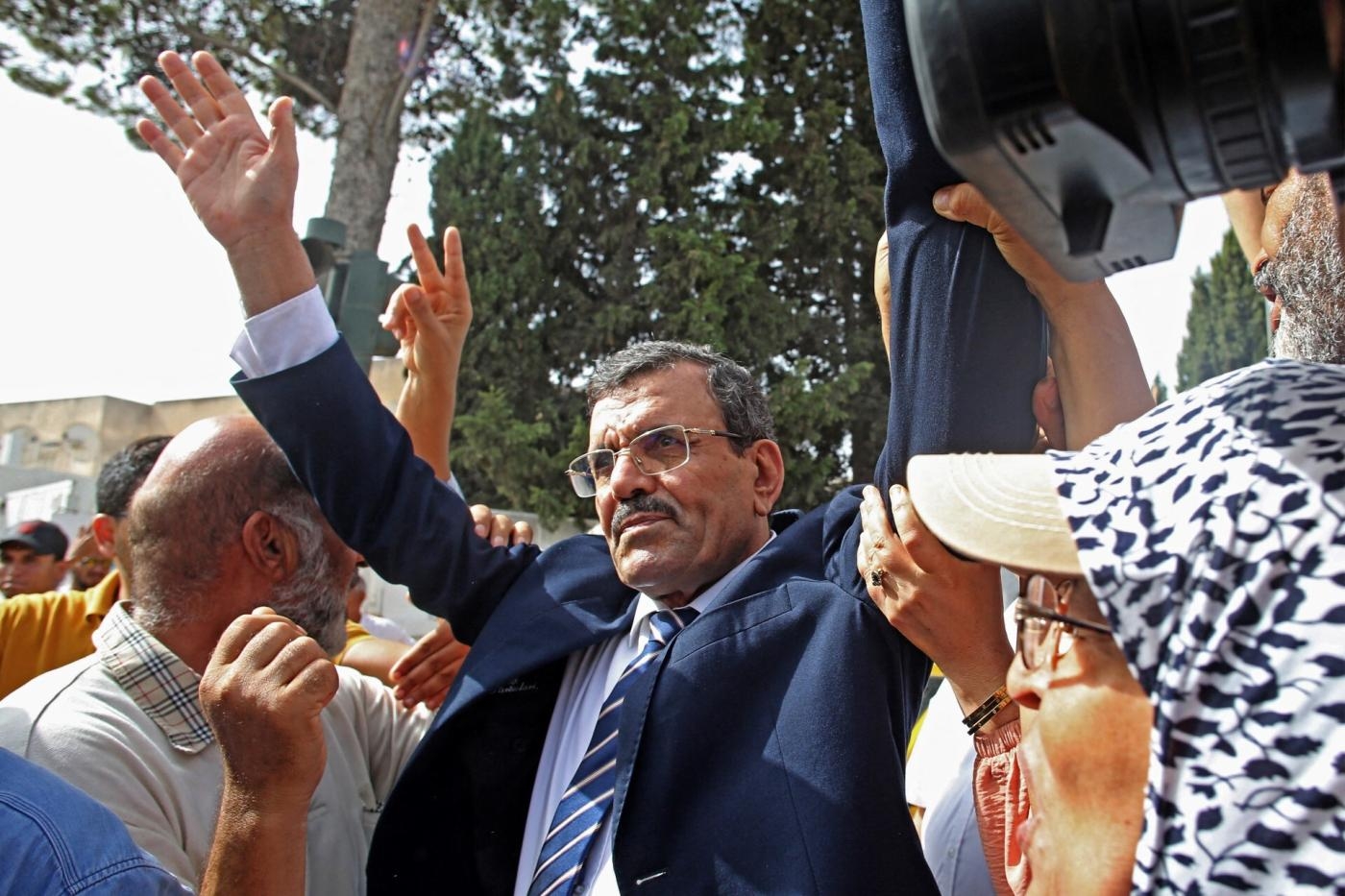Tunisia jails former prime minister Ali Laarayedh

A Tunisian court on Monday imprisoned Ali Laarayedh, a former prime minister and senior official of the Ennahda party, his lawyers said.
"The investigative judge issued a prison decision against former Prime Minister Ali Laarayedh in what is known as the 'deportation jihadists' file," lawyer Ines Harrath said.
"This is true," Mokthat Jmayi, another Laarayedh lawyer, told Reuters without giving further details.
Laarayedh was previously sentenced to 15 years in prison under the former Tunisian autocrat Zine Abedine Ben Ali because of his activism with Ennahda, an Islamist party that describes itself as Muslim democratic.
Stay informed with MEE's newsletters
Sign up to get the latest alerts, insights and analysis, starting with Turkey Unpacked
In a statement, Ennahda, Tunisia's largest political party, denied the allegations against Laarayedh, calling them a "desperate and blatant attempt by the coup authority and its president, Kais Saied, to cover up the abject failure in the sham legislative elections".
Only 11.2 percent of Tunisian voters cast ballots in Saturday's parliamentary elections.
The statement went on to add there was "no evidence" for the accusations and the charges were "fabricated…to put pressure on and harass politicians who reject the coup".
Saturday's parliamentary vote was boycotted by most opposition parties, which accused Saied of reversing the democratic progress that had been underway since 2011.
The low turnout from these parliamentary polls starkly contrasts with the 2019 results, when the turnout was 42 percent.
After the turnout figures were announced, major parties, among them the Salvation Front opposition grouping, which includes Ennahda and its arch-rival the Free Constitutional Party, said Saied had no legitimacy and should step down, calling for massive protests.
One-man rule
Saied seized power last year in what opponents have labelled a coup, leaving proponents of democracy in the country with few options.
In July 2021, he sacked the prime minister and suspended parliament.
The blueprint for his power grab was exposed by Middle East Eye three months earlier.
Earlier this year, he pushed through a constitutional referendum that enshrined his one-man rule.
Laarayedh is not the only former government official facing prison.
Rached Ghannouchi, former speaker of Tunisia's now-dissolved parliament and president of Ennahda, was summoned to a police station facing accusations of supporting "terrorism" earlier this year.
In July, he appeared in court as a result of a money laundering probe, which critics described as politically motivated. Ghannouchi also denies the accusations against him.
On most metrics, Tunisia is worse off today than when Saied carried out his coup in July 2021. The economy is in a poor state and the government has turned to the International Monetary Fund for assistance.
The number of Tunisians leaving the country in the past two years has dramatically risen, with experts suggesting this trend is likely to be sustained over the foreseeable future.
On Sunday, a US State Department spokesperson said that the low voter turnout reinforced the need for the North African country to further expand political participation in the coming months.
"The parliamentary elections… represent an essential initial step toward restoring the country's democratic trajectory," US State Department spokesperson Ned Price said in a statement.
"However, the low voter turnout reinforces the need to further expand political participation over the coming months."
Middle East Eye delivers independent and unrivalled coverage and analysis of the Middle East, North Africa and beyond. To learn more about republishing this content and the associated fees, please fill out this form. More about MEE can be found here.




